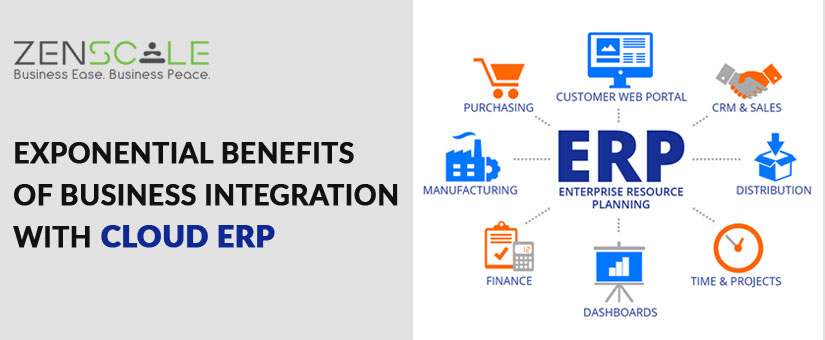United we stand, divided we fall. It not only applies to people but also to processes. In any trade, no activity is isolated. Every activity in a business is linked to another one and is part of a workflow. Since everything is interlinked, shouldn’t it be managed likewise? As a business owner or manager, one needs to collectively streamline workflows to be able to conveniently monitor their performance, status, check operations, and strategize to move in the forward direction. In short, we need to integrate the three levels of management- operational, managerial, and strategic, develop a methodology that integrates all these 3 levels to achieve our goals and experience the ease of business as well.
This is what we will discuss in this article today
1. What exactly is a business integration
2. Why is it important
3. Benefits of Integration
4. How can ERP systems profitably integrate the business
What is Business Integration?
The world’s most valuable resource is information or data. To integrate data, it needs to be stored in one place. In the context of an organization, not only the data but also the processes are synchronized and combined in one place. This involves the assimilation of processes in each system such as sales, accounts, and marketing, which are then combined into a single view or platform to manage for customer service, reporting, analysis, and strategic control. Business integration is the amalgamation of technical and corporal processes used to convert information from all sources into meaningful data to be used for planning & operations. The chief driver for extended integration is digitalization. Digital transformation integrates human resources, material lifecycle, production, accounts, and operations in one place with comprehensive Cloud ERP Software Solutions.
Why is it Important?
Running every business can be tough. Why? Because it has many aspects and levels of management, namely, employees, sale order, purchase, accounts, operations, product lifecycle, customer relations, and quality control, etc. It can be challenging to manage everything together without any technology. Especially when your competitors have tech-savvy software to manage all the modules in one system. Standardizing processes within an organization and creating one-source platform results in less confusion and error. You may call it a compilation of multi-tasking to enhance your business portfolio in a competitive market.
Benefits of Business Integration via Cloud ERP
The benefits of adopting an integrated enterprise resource planning solution are exponential. Following are the diversified leverage you gain to get an edge over your competitors. Through the process integrations, ERP achieves numerous improvements or intangible benefits
• Quicker information response time
• Collaborative interaction across the enterprise
• Improved order management/order cycle
• Improved interaction with customers
• Task allocation & Project handling
• Improved cash control
• Better Resource management
• Building flexibility for current & future changes
• Legal & Financial compliance
• Automation
• Real-time accurate data access
The above intangible benefits of performance quickly convert into Tangible Benefits or visible advantage :
1. Decreased financial close cycle
2. Lowered inventory levels
3. Reduced direct operating costs
4. Productivity improvement
5. IT cost reduction
How can ERP systems profitably integrate the business?
Cloud ERP solutions are based on the basic principle of integration. They use software technology to combine the siloed data of an enterprise and modularise it so that it becomes possible to manage all departments from one space. Through the ERP suite operations, planning and strategic development become super easy. As the nitty-gritty is taken care of, organizations can focus on improving productivity and serving their customers instead of struggling to ensure that operations and financials are not chaotic, or the legal requirements are not being met. ERP centralizes control over multiple branches, human resources, materials, and financials. It brings the focus on time reduction, real-time insights, and forecasting which converts into improved profitability.
Cloud ERP systems have modules for payroll, inventory, manufacturing, accounting, and task management. ERP vendors provide custom implementation and support for all major industries, such as
• Hospitality
• Construction & Engineering
• Healthcare
• Retail
• Distribution
• Consultation & Services and many others
The coordination and collaboration in a vertically integrated organization help achieve more than a 10% gain in market share.
